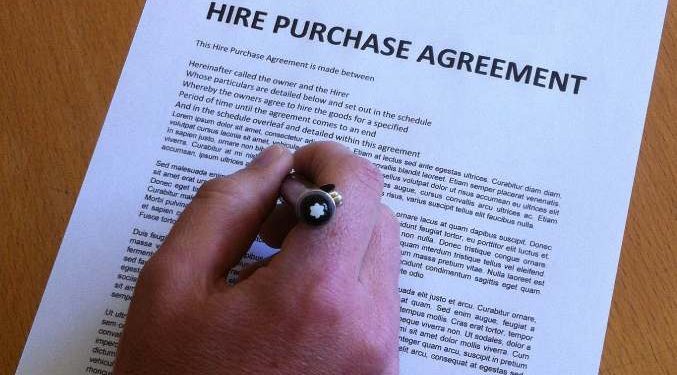Hire purchase refers to an arrangement for buying expensive consumer goods, where the buyer makes an initial down payment and pays the balance plus interest in instalments. All money being paid in the meantime is regarded as payment of hire and the goods become the property of the buyers only when all the installments have been paid.
If the purchaser makes default in the payment of an instalment, the seller can take back the possession of the goods.
This type of business normally occurs in the case of durable consumer articles like sewing machines, televisions, desert coolers and refrigerators etc.
Advantages
Items can be repossessed if payments are not made, because the ownership of the item does not officially transfer until all payments are made.
Convenience in payment. This is because the costs of the items are spread over time.
Increased profits as a result of the increased volume of sales brought about by the convenience of paying for the customers.
Hire purchase attracts interest, which increases profits to the seller.
Small traders can purchase machinery and other equipment on an installment basis and in turn sell to the buyer charging full price hence leading to increased profits.
Disadvantages
Higher price. The interest rates on a hire purchase agreement will cause the final cost of the item to be higher than if it were purchased outright.
There are fewer discounts usually offered to buyers who pursue a hire purchase agreement. That is because there are more risks associated with that type of transaction, such as failure to pay the complete instalments.
Artificial demand may lead to impulse buying because the buyer is tempted to purchase the products, even if he does not need or afford to buy the product.




